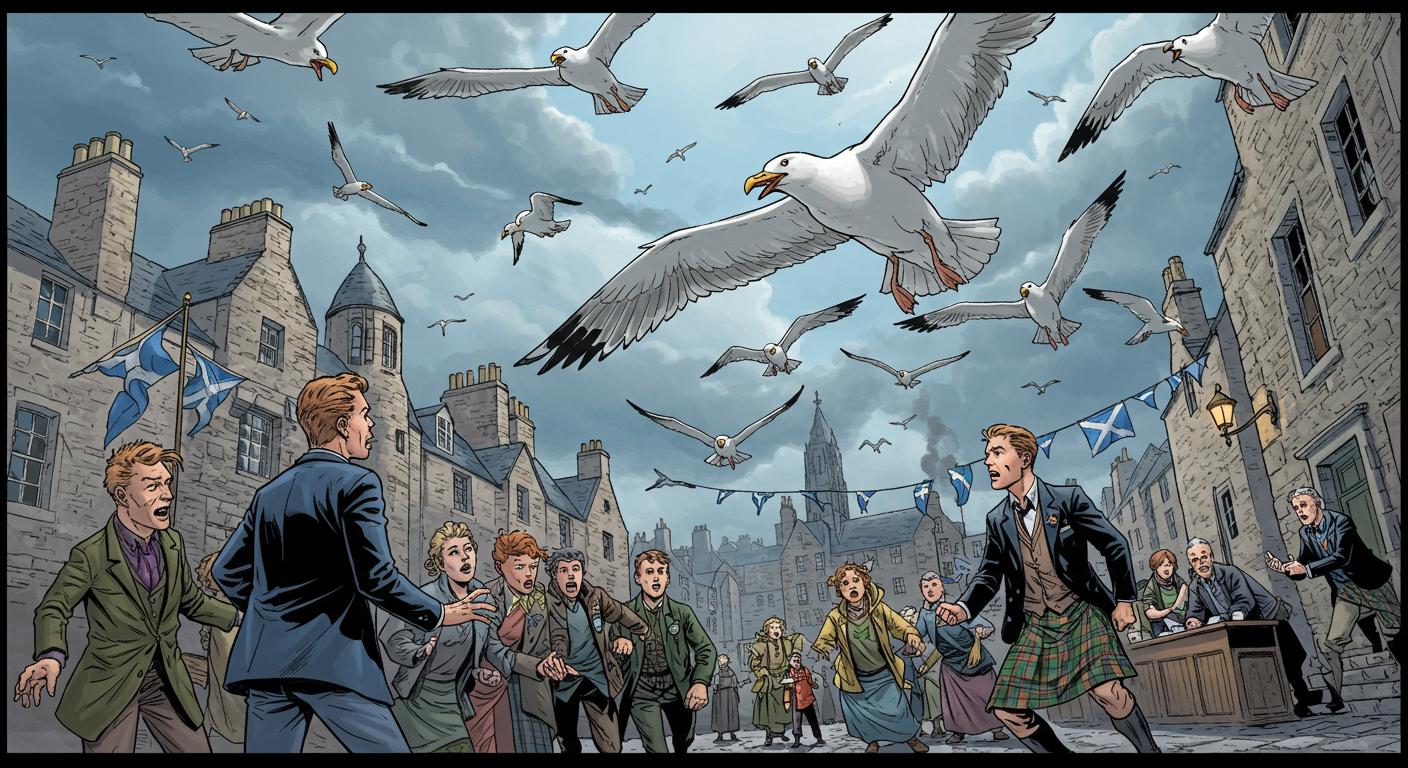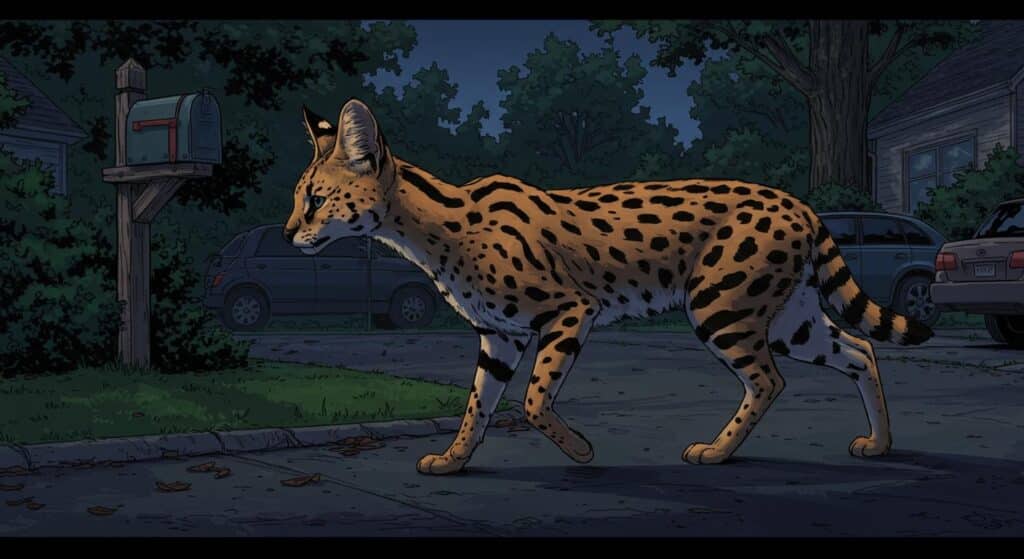When the grand halls of parliament convene to discuss threats to public safety, you might expect the antagonists to be virulent pathogens, ferry strikes, or perhaps rogue sheep. In Scotland this week, as covered by Sky News and detailed by the Daily Record, the focus landed squarely on seagulls. Actual, airborne, unapologetic birds. If politicians succeed, these feathered adversaries may soon be the subject of an official Scotland-wide summit. Intergovernmental diplomacy, but for birds with an appetite.
From “Nuisance” to Parliamentary Crisis
The debate at Holyrood unfolded with the intensity typically reserved for more conventional public threats, and the two outlets document how MSPs presented tales of seagull aggression that would give any urban pigeon pause. Rachael Hamilton, MSP for Ettrick, Roxburgh and Berwickshire, outlined a single month in Eyemouth where seven children suffered injuries attributed to gull attacks—one incident leaving a girl with head wounds. Both reports emphasize her claim that local residents and business owners describe being “scared, attacked and traumatised.” This terminology, while often reserved for far graver calamities, has now migrated to discussions about seaside miscreants with wings.
Highlands and Islands MSP Douglas Ross, who called the debate, underlined that while some “smirk” at legislators dedicating time to gulls, the issue is considered “deadly serious” in his inbox. He relayed accounts of people reluctant to leave home for fear of being “divebombed,” as well as a constituent allegedly spending thousands on nest removal. As highlighted across the coverage, the backdrop to these concerns is a sense among some community members that the issue is escalating, not receding.
Bureaucracy in the Age of Beaks
The underlying frustration appears to center as much on bureaucracy as on bird behavior. Both outlets summarize stern criticism of NatureScot, the government agency tasked with the delicate dance of both bird protection and population control. Ross argued there’s a conflict of interest—a sentiment echoed in the parliamentary discussion—calling out the agency’s dual roles and remarking on official advice that residents should consider umbrellas or even canine bodyguards as gull deterrents. In his view, as Sky News paraphrases, the agency’s response is out of touch with public sentiment.
Administrative hurdles around licensing for bird control were described as burdensome and ineffective, with repeated calls for a more robust and responsive national approach. Hamilton and others pressed the case for a Scotland-wide summit, dismissing the idea of limiting talks to northern regions only—a suggestion originally proposed by Agriculture minister Jim Fairlie.
Feeding the Frenzy: Cause and Effect
While much of the debate took on an urgent, even adversarial tone, there were moments when the parliamentary conversation circled back to the root cause. Both outlets recount Fairlie’s argument that human behavior—especially feeding gulls and leaving food waste—has encouraged gulls to adopt urban life, leading to increased proximity and, inevitably, conflict. Urban environments, litter, and the abundance of snack-sharing humans have combined into a perfect recipe for bird bravado.
There’s a somewhat unspoken irony here: much of the governmental machinery now mobilized to address “nuisance” gulls is, at root, responding to a problem of our own making. Is demonising gulls entirely fair, or are we battling a mess of our own design? SNP MSP Christine Grahame urged against vilifying the birds, describing them as “clever, adaptable” creatures acting according to instinct, not malice—an appeal documented in both reports as a counterpoint to the more heated rhetoric.
Will a Summit Provide Solutions, or Just Headlines?
Discussion of a potential “gull summit” prompts questions as to what such a gathering might yield in practical terms. There’s a certain peculiar charm in imagining Scotland’s best minds debating ways to outwit an avian adversary. Is the intended outcome meaningful policy, or will it prove yet another meeting heavy on paper and light on practical change? As both Sky News and the Daily Record relay, actual government intervention is hampered by complex licensing regimes and legal constraints, while the core behavioral issue—people providing a food source—remains largely unaddressed beyond calls to “stop feeding the birds.”
In the end, much hinges on whether this moment signals the start of a real shift in urban wildlife policy, or if it’s merely a flash of feathered drama destined to fade with the next headline. Will concrete changes follow, or will residents be left arming themselves with umbrellas and good humor? As Scotland prepares for its summit with the gulls, one might wonder: is coexistence possible, or will the birds simply wait for the next unattended chip shop lunch?







